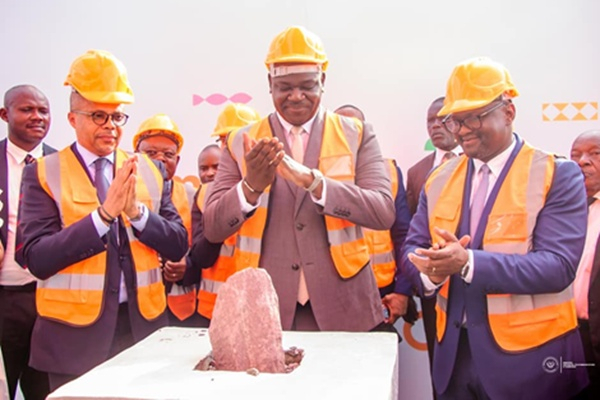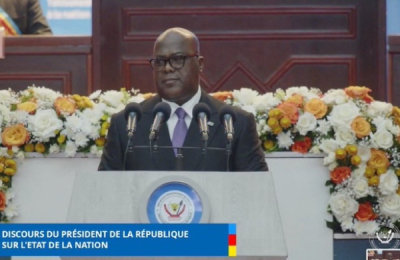On April 16, 2025, Orange Group laid the foundation stone for its future headquarters in Kinshasa, Democratic Republic of Congo (DRC). The firm thus officially kicked off the project, which it expects to be done by October 2027.
The eight-story building will cover 10,000 m² and feature an autonomous solar energy system. Located on Avenue des Huileries in Lingwala commune, opposite the Martyrs de la Pentecôte stadium, the headquarters symbolizes Orange’s deep local commitment.
“This project reflects our digital ambition and local roots,” said Orange DRC CEO Ben Cheick Haidara, highlighting confidence in the country’s economic and digital potential despite a challenging business environment.
Minister of Posts, Telecommunications and Digital Affairs Augustin Kibassa Maliba called the headquarters “a major leap forward for the DRC’s technological development,” envisioning a modern, innovative workspace that will benefit all Congolese.
According to the Congolese telecom watchdog, ARPTC, Orange is the nation's second-largest mobile operator, with 18.5 million subscribers. It trails Vodacom's 22.5 million but is ahead of Airtel and Africell.
Global Market Share in Q2 (left) and Q3 (right) of 2024 (Source : Arptc)
With 62.2 million mobile subscribers—reaching a penetration rate of 65.8%—and 32.1 million mobile internet users (33.8% penetration), the DRC’s population of over 100 million marks a market still ripe with untapped potential.
The government’s strong push to make digital transformation a key driver of economic and social growth aligns perfectly with the opportunities Orange sees in the DRC.
The company is well-positioned to lead across multiple sectors, including the booming startup scene, digitalization of public and private services, cloud computing, data storage, and cybersecurity.
Mobile Money Market Share in Q2 (left) and Q3 (right) of 2024 (Soure: ARPTC)
Another key growth driver of Orange in the DRC is Mobile Money, with its penetration rate of 26.7%.
But realizing these ambitions depends heavily on the continuation of government reforms to boost the digital economy. Critical areas include enhancing the regulatory framework, managing frequency spectrum, expanding infrastructure, issuing new licenses, and improving access to mobile devices.
Political and security stability in the country are key to ensuring these investments’ materialization over the long term.
Muriel Edjo, We Are Tech










